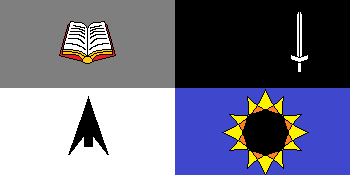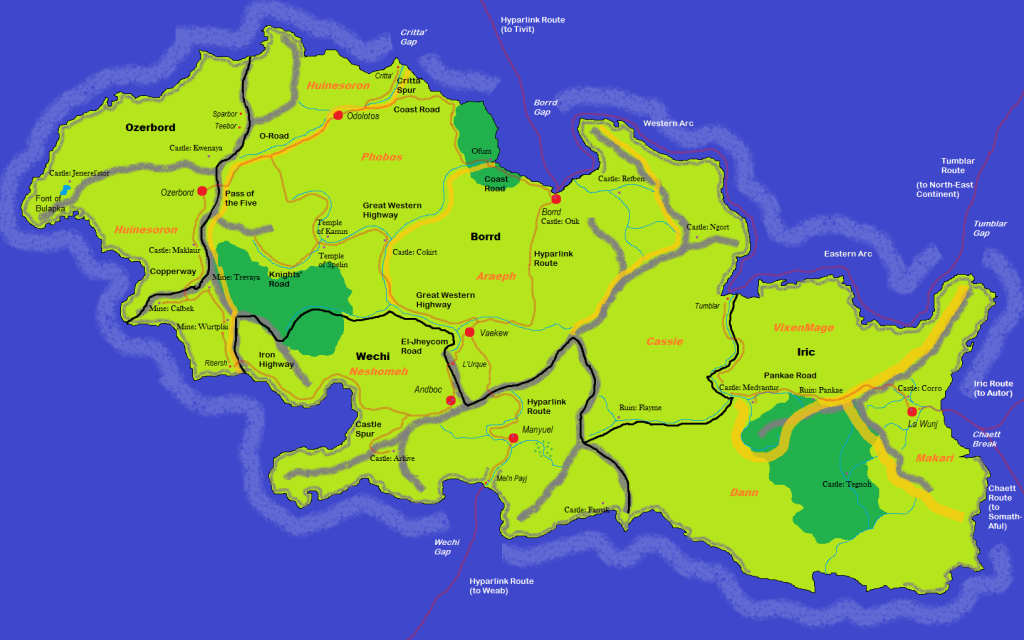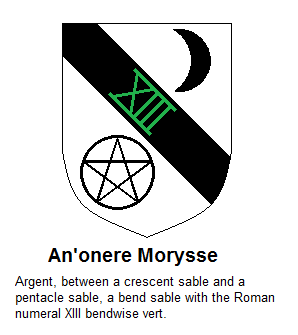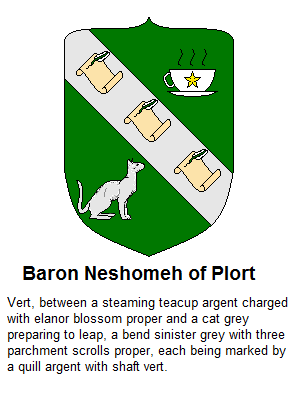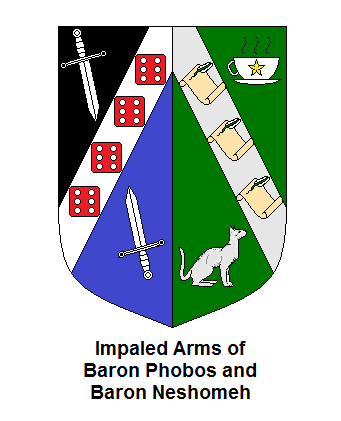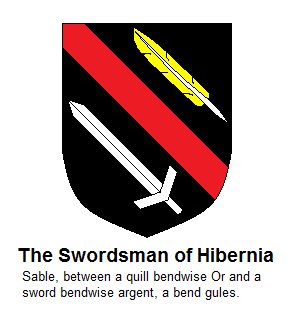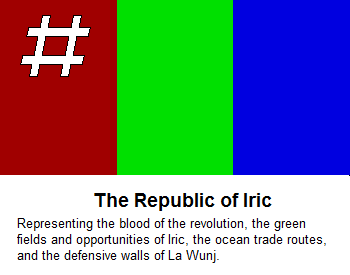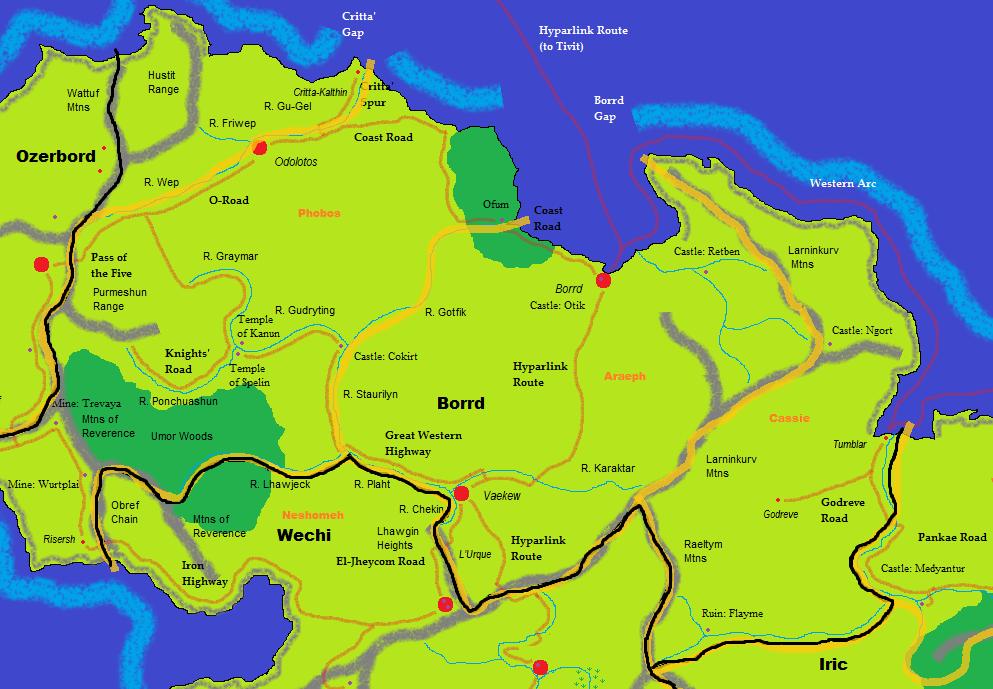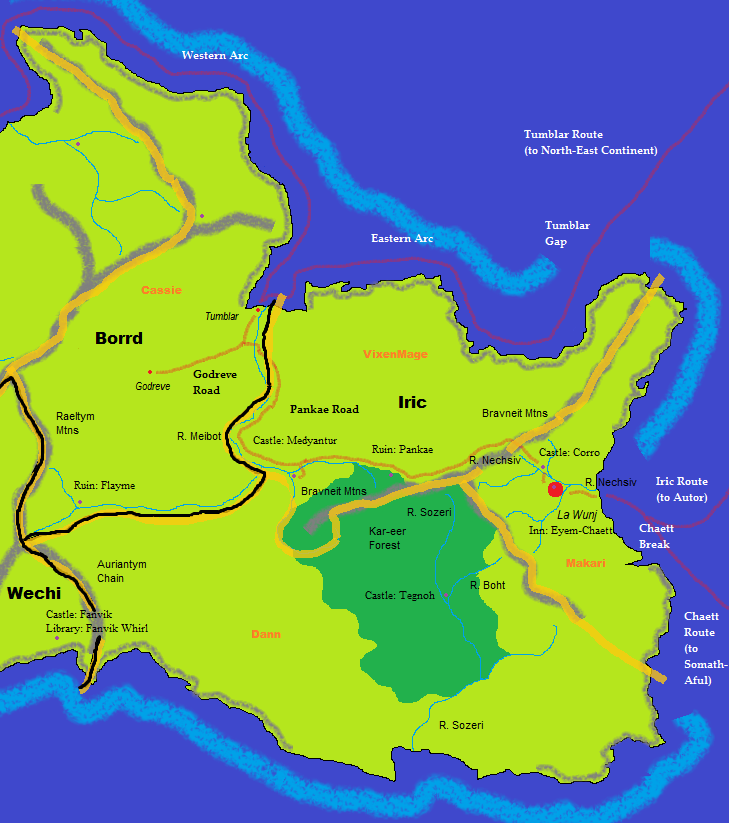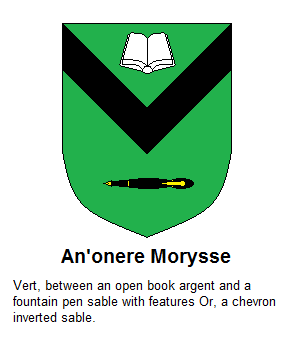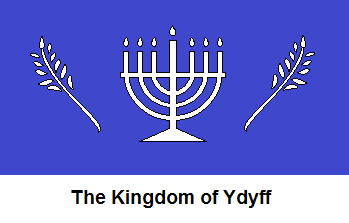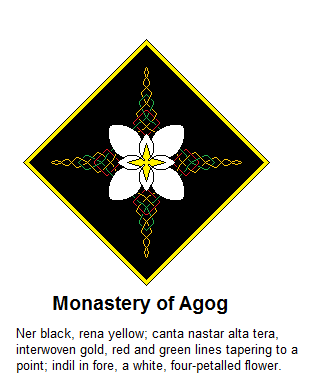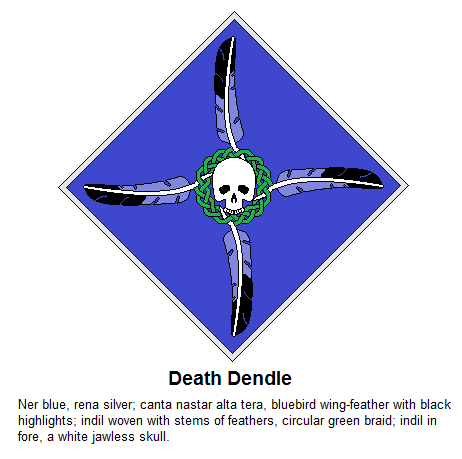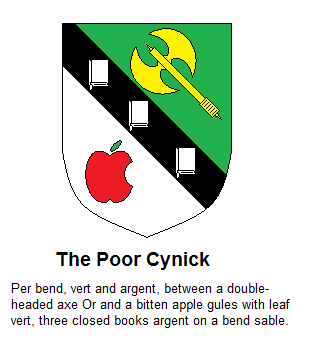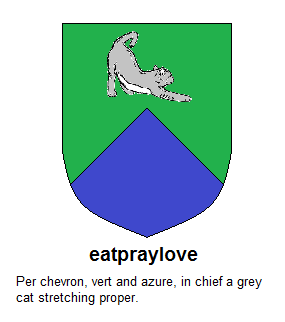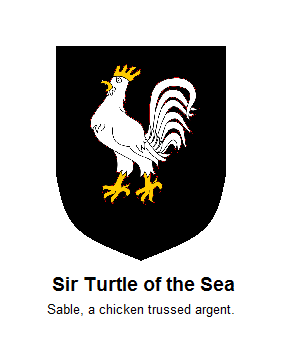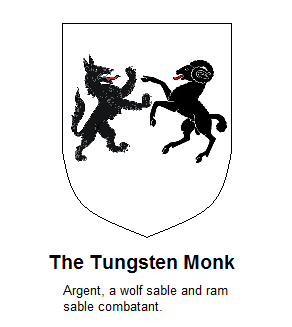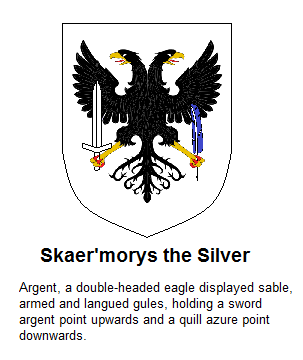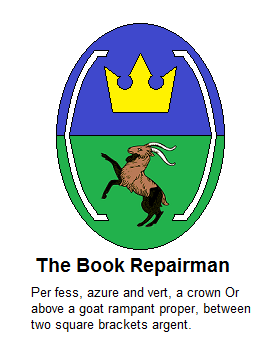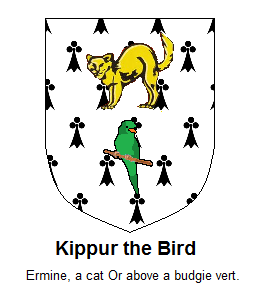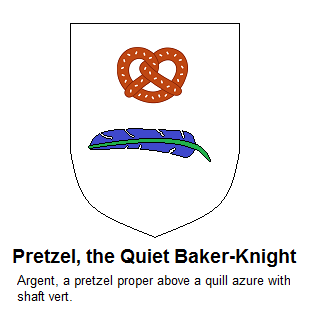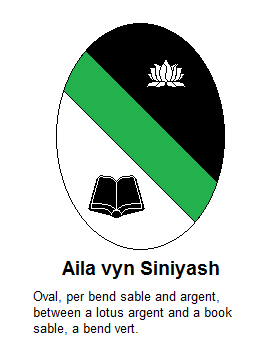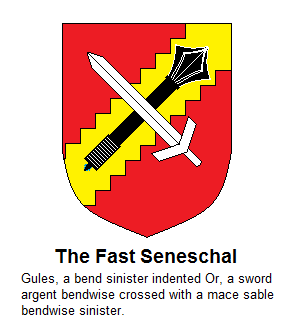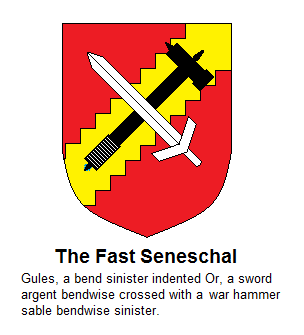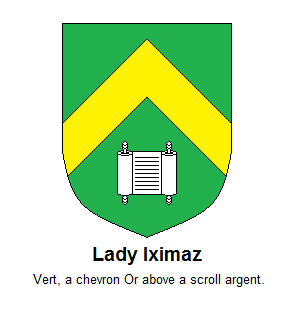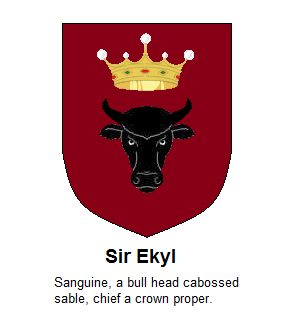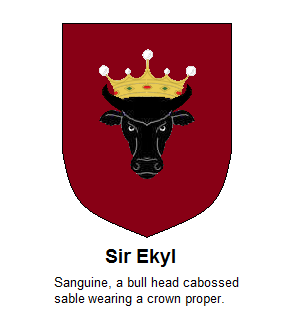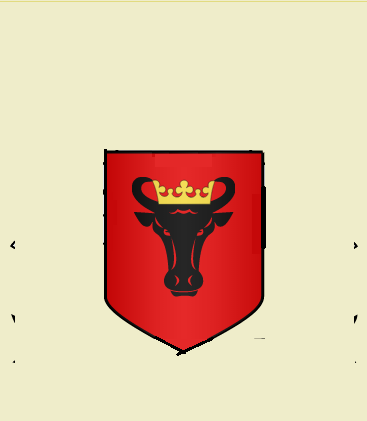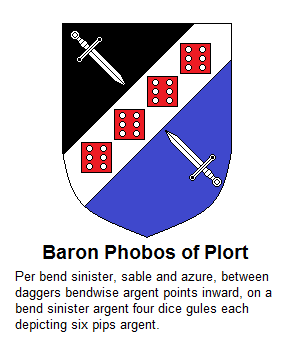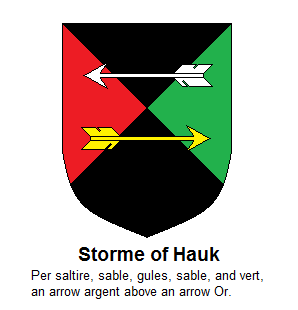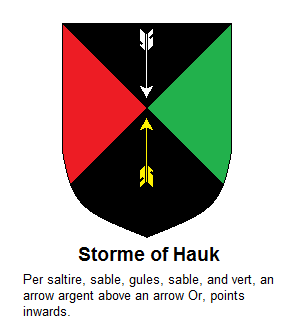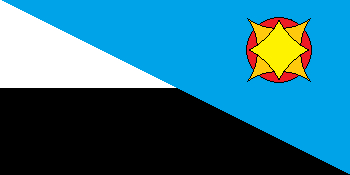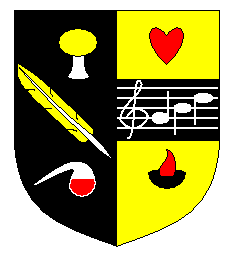Subject: More features and entries (not all Plort)!
Author:
Posted on: 2014-08-28 03:10:00 UTC
Since you said none of the features in Iric have been named yet I thought I'd have a stab while this thread is still on the front page. Also randomly throwing together a few entries for stuff outside Plort just to flesh the world out a little.
Bravneit Mountains - Mountain range, Republic of Iric. These mountains have been referred to as the "Spine of Iric", enclosing the riverlands where the Republic's capital can be found. The range stretches southwest from Iric's northeasternmost peninsula to the edge of the Kar-eer Forest, as well as branching southeast between these two points - where the mountains branch at the beginning of the Kar-eer Forest marks the border between the baronies of Dann and Makari. Many of the rivers that flow through Iric find their source somewhere in this range.
Meibot - River, Republic of Iric. One of the nation's longest rivers, the Meibot flows all the way to Tumblar and the sea, forming part of the border between Iric and Borrd. A bridge has been built to cross the river, where the Godreve and Pankae Roads meet.
Sozeri - River, Republic of Iric. Arguably the longest river in Iric, the Sozeri flows south through the entire Kar-eer Forest and into the sea, joined by its tributary the Bhot at Castle Tegnoh.
Nechsiv - River, Republic of Iric. A raging river that forms part of La Wunj's natural defences, along with the Bravneit Mountains; the castle Corro stands on the opposite side of the river from Iric's capital.
Sovet - Nation, Weab. Not far west of Are-Pea, Sovet is a militaristic nation whose people enjoy feats of martial skill and weaving song or story in equal measure. Ritualised (or not so ritualised, for criminals or prisoners of war) gladiatorial contests are a favourite pastime in Sovet, with winners or combatants often determined by the drawing of lots, and it is said the typical man or woman of Sovet is equally talented with sword, harp and pen.
Pedox - City, Vidya Gaym. It is a city whose people love the art of strategy, and many famous colleges of war have their campuses here. Pedox-trained strategists are highly sought after in many of the courts of Weab.
Wichs - Mountain range, Tivit. These mountains divide the kingdom in half, forking east and west at the northernmost tip of the nation and extending southwards well into the forests of Yu'Tub. The range hosts an assortment of mines and fortresses along its length, essential to Tivit's economy and national defence.
Stet-Rorhip - City (destroyed), Tivit. One of a pair of cities along Tivit's eastern coast known as havens of depravity, this port city was a centre of trade and a destination for travellers until the first battle between Tivit and Somath-Aful, after which the victorious imperial fleet sailed to Stet-Rorhip and put the entire city to the torch, looting anything that was not destroyed. Logistics and an administrative edict prevented a full invasion of Tivit, but King Edward has never ordered the city's reconstruction, leaving the great ruins to overlook the kingdom's eastern bay.
Feishfulet - City (destroyed), Tivit. A city on Tivit's eastern coast known as a den of vice and immorality, greater even than Stet-Rorhip. Edward the Swift's growing paranoia and Tivit's many defeats at the hands of Somath-Aful eventually provoked a rebellion against the king, and Feishfulet was sacked by a loyalist army during the fighting. The city was ordered torn down, its materials used to construct a new settlement further up the coast; while some have applauded Edward's actions in quashing a source of lawlessness in the kingdom, others have named him a butcher of his own people.
Rychert, Emperor - Noble, Emperor of Somath-Aful. Emperor Rychert is known for his lenient tax policies, strange sense of humour and prowess in battle, for which he was once feared across the lands of Weab; many remember when his wrath meant the death of entire nations, and dread the sight of his banners approaching on the horizon. His lands are now orderly and peaceful for the most part, and he has become somewhat aloof as a ruler, leaving many of the day to day tasks of governance to a corps of administrators chosen from his ablest citizens. These men and women are granted the right to enforce the laws of the land and issue edicts in the name of Rychert himself; none in the empire would dare defy such a command, but the emperor watches these administrators carefully for any signs of corruption or incompetence, swiftly removing those who abuse their powers or fail to perform their duties. Though the empire appears at times to run itself, Rychert's subjects know that in the end, nothing escapes his notice.
